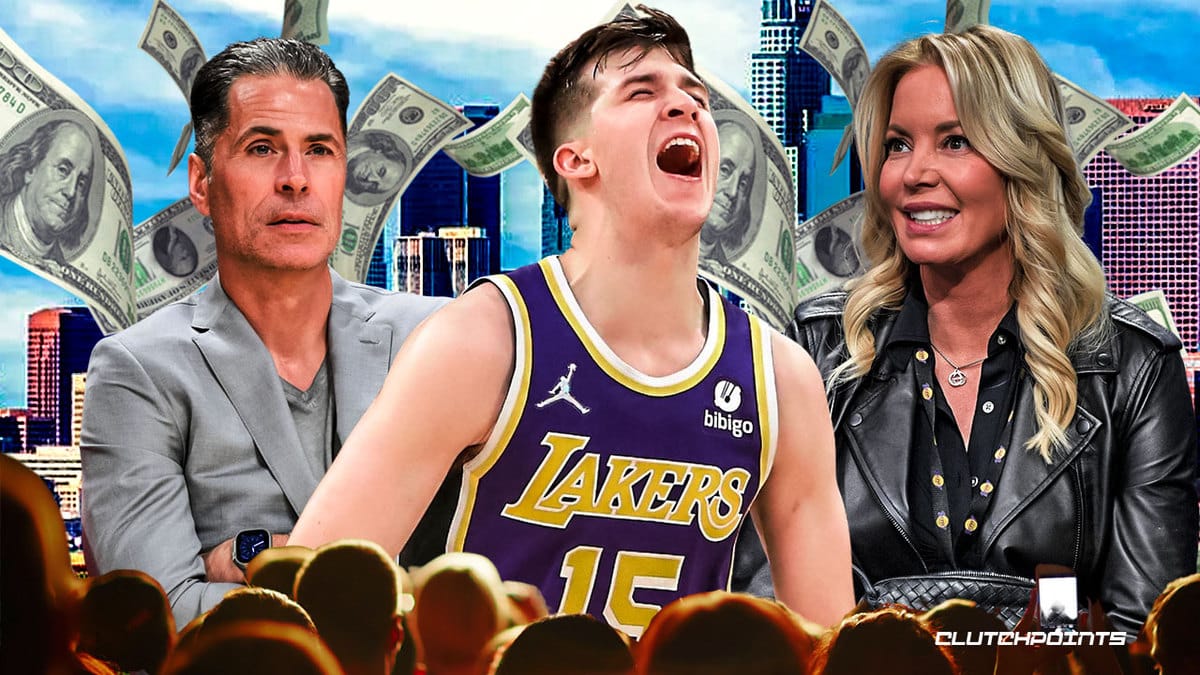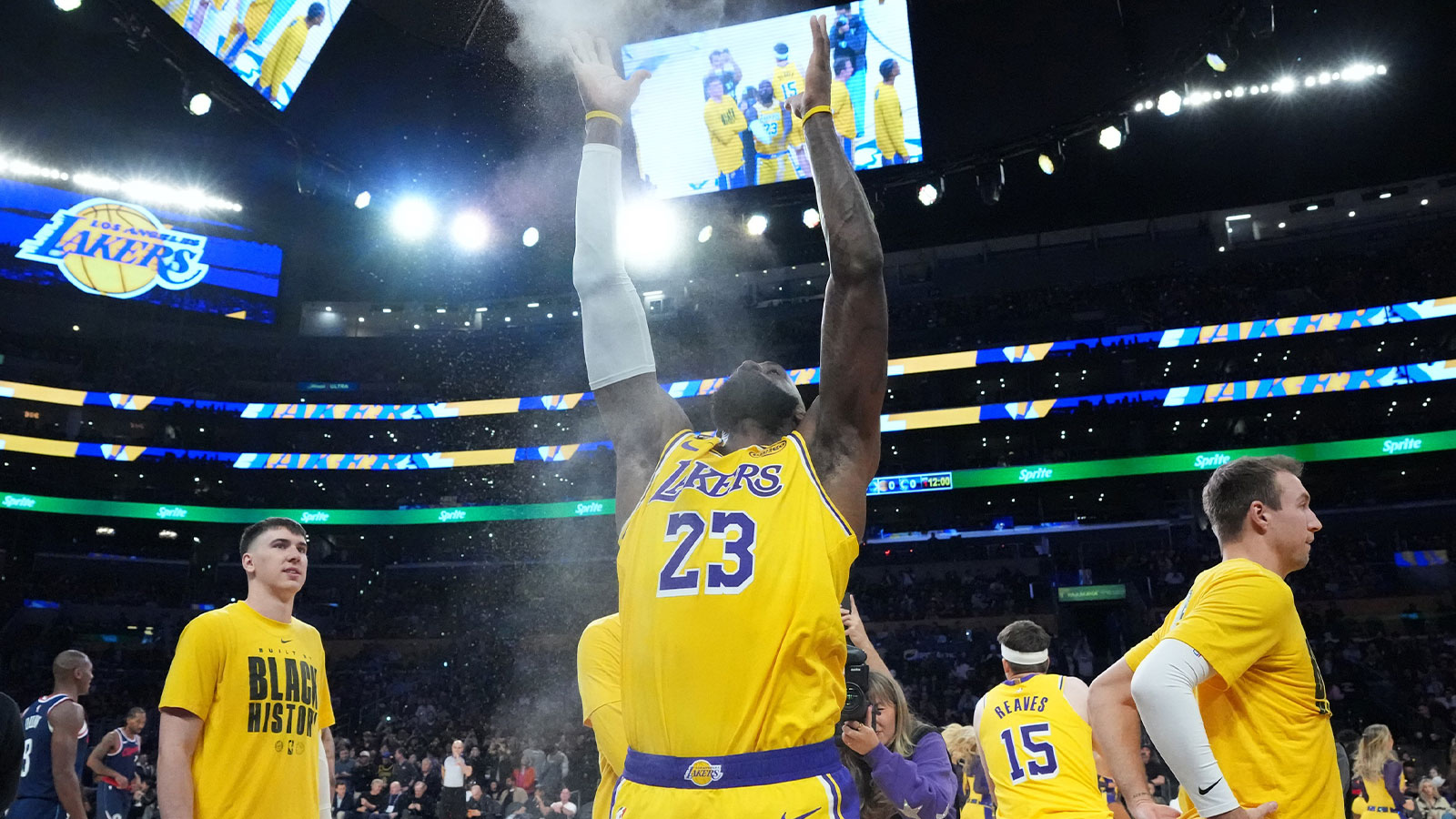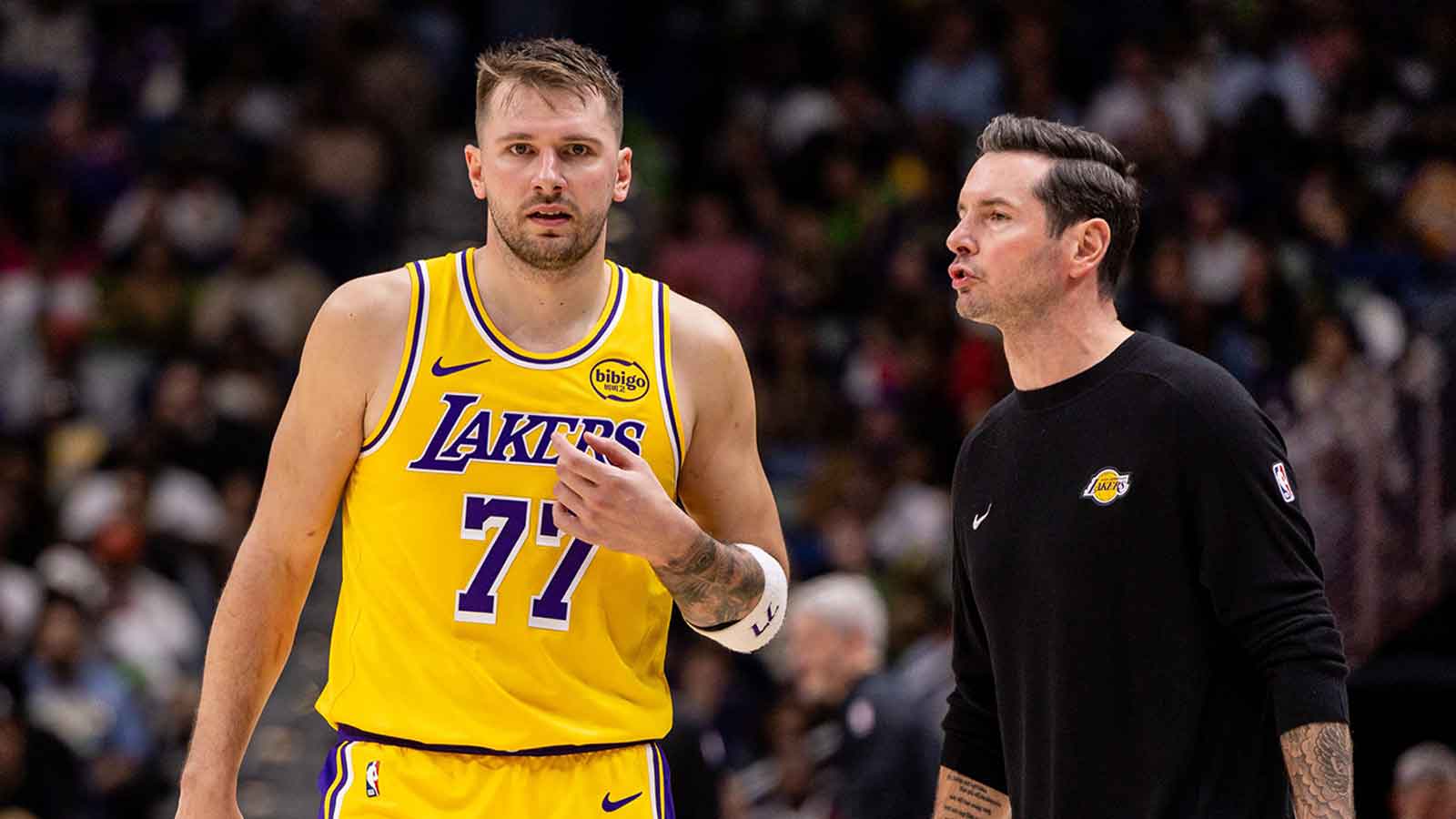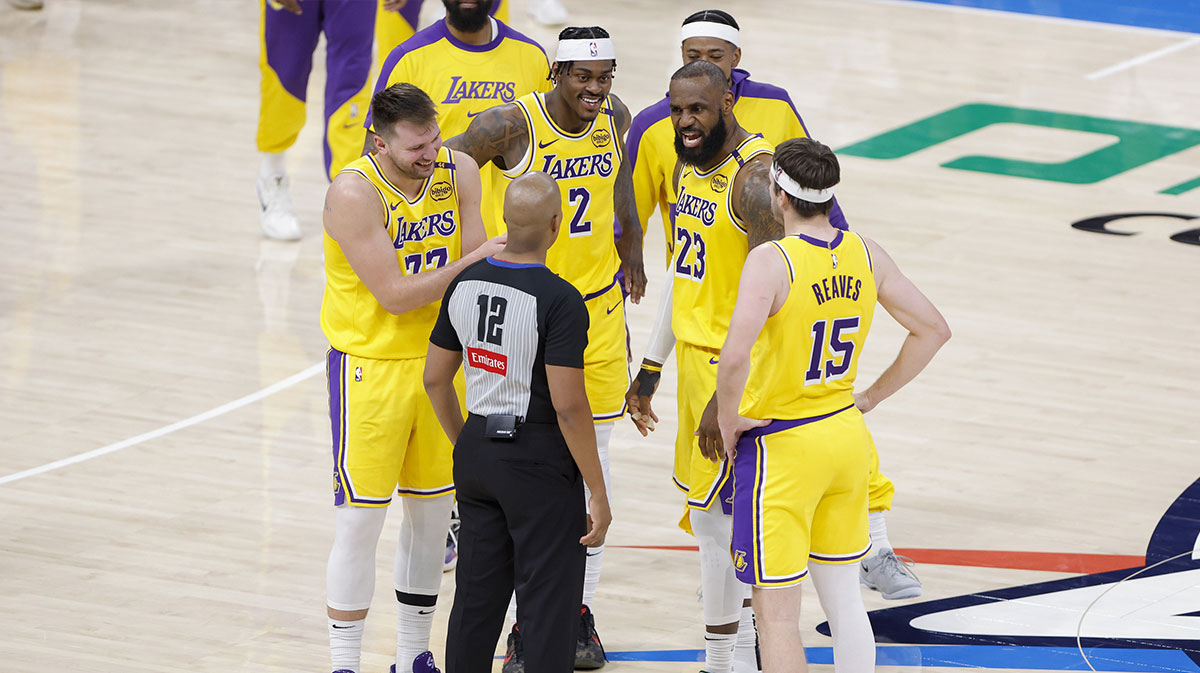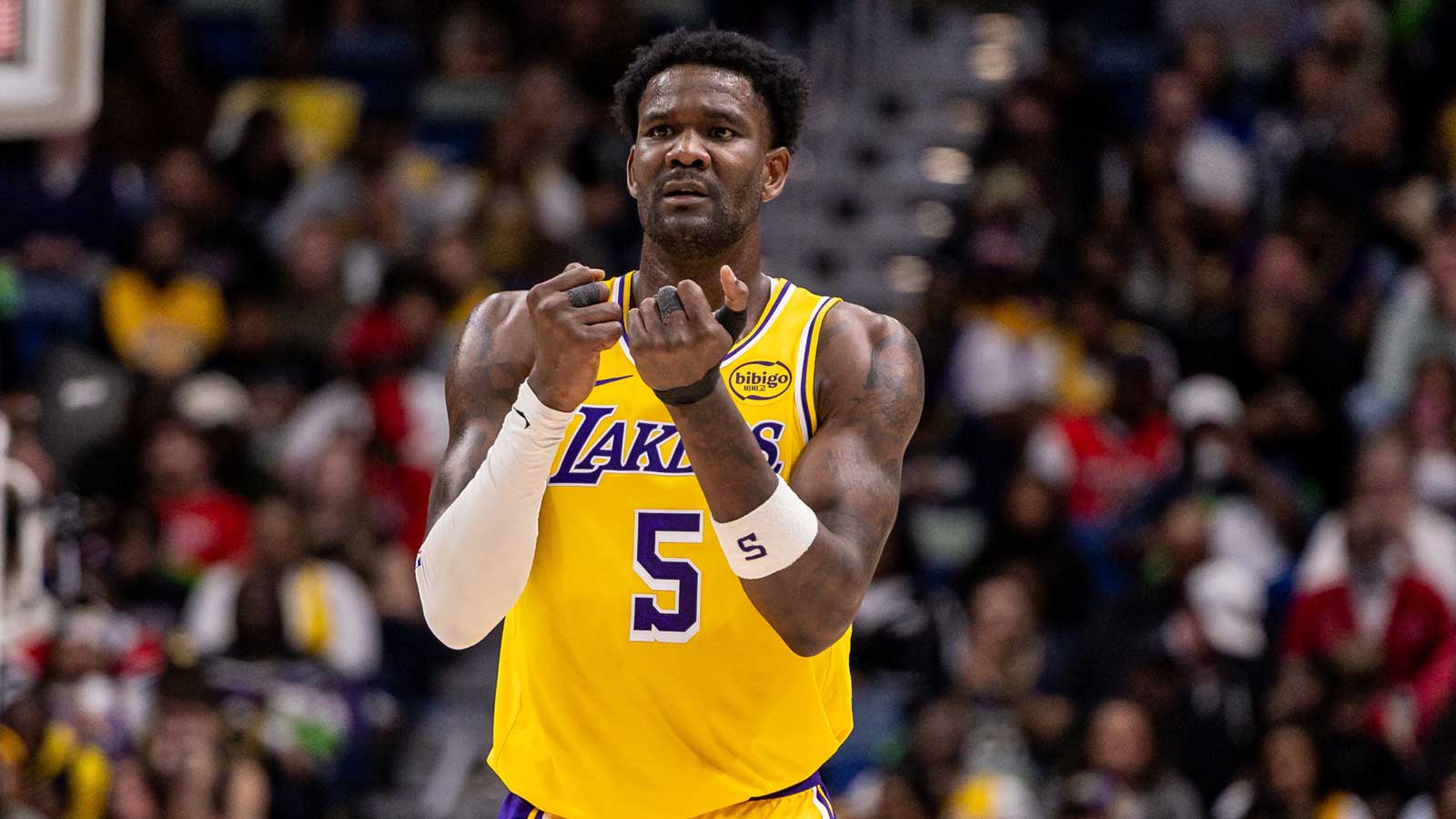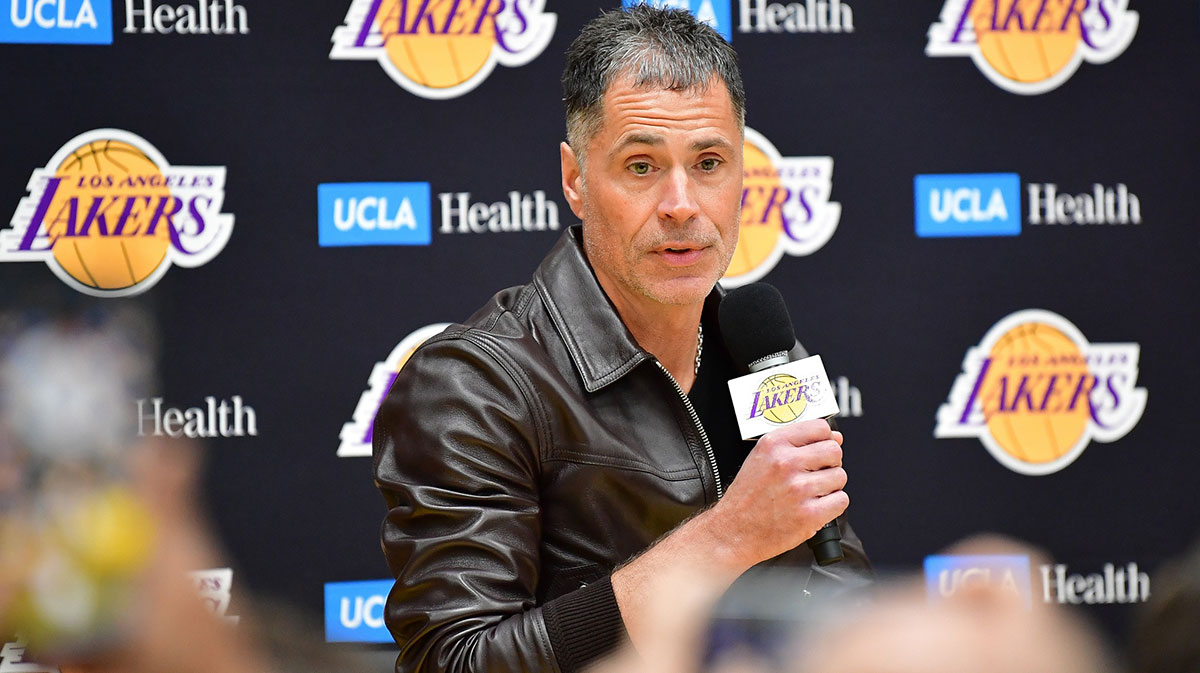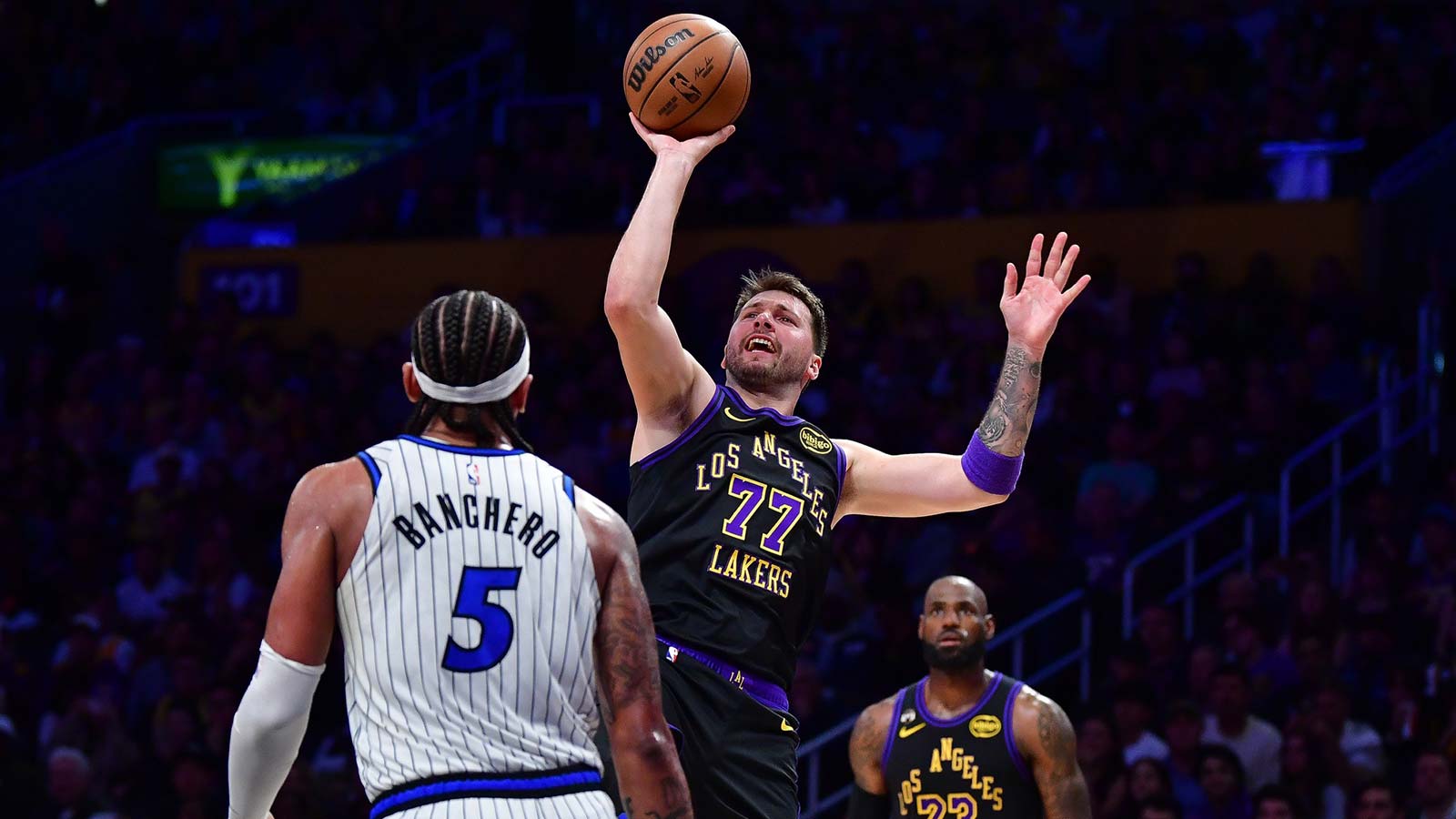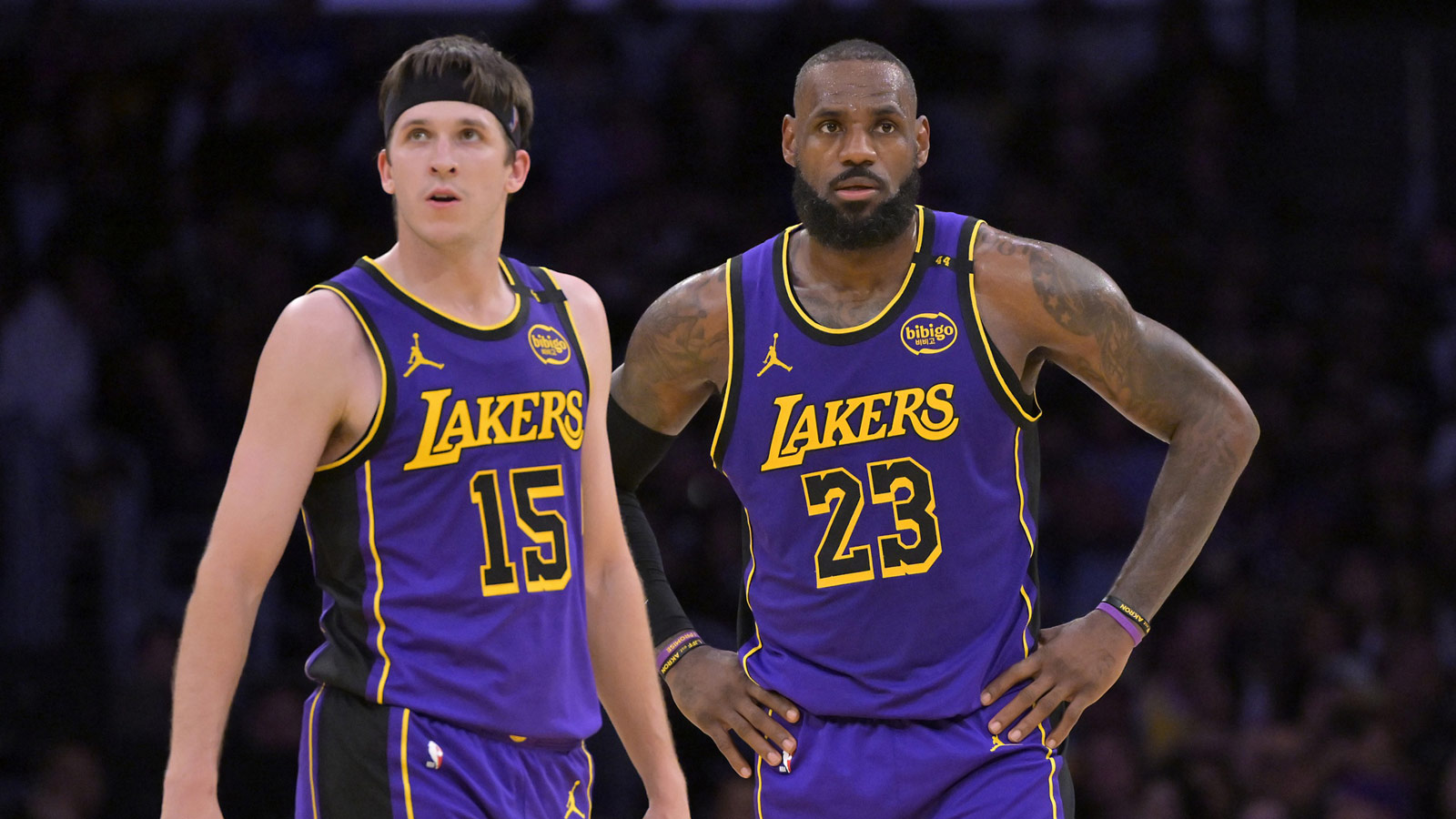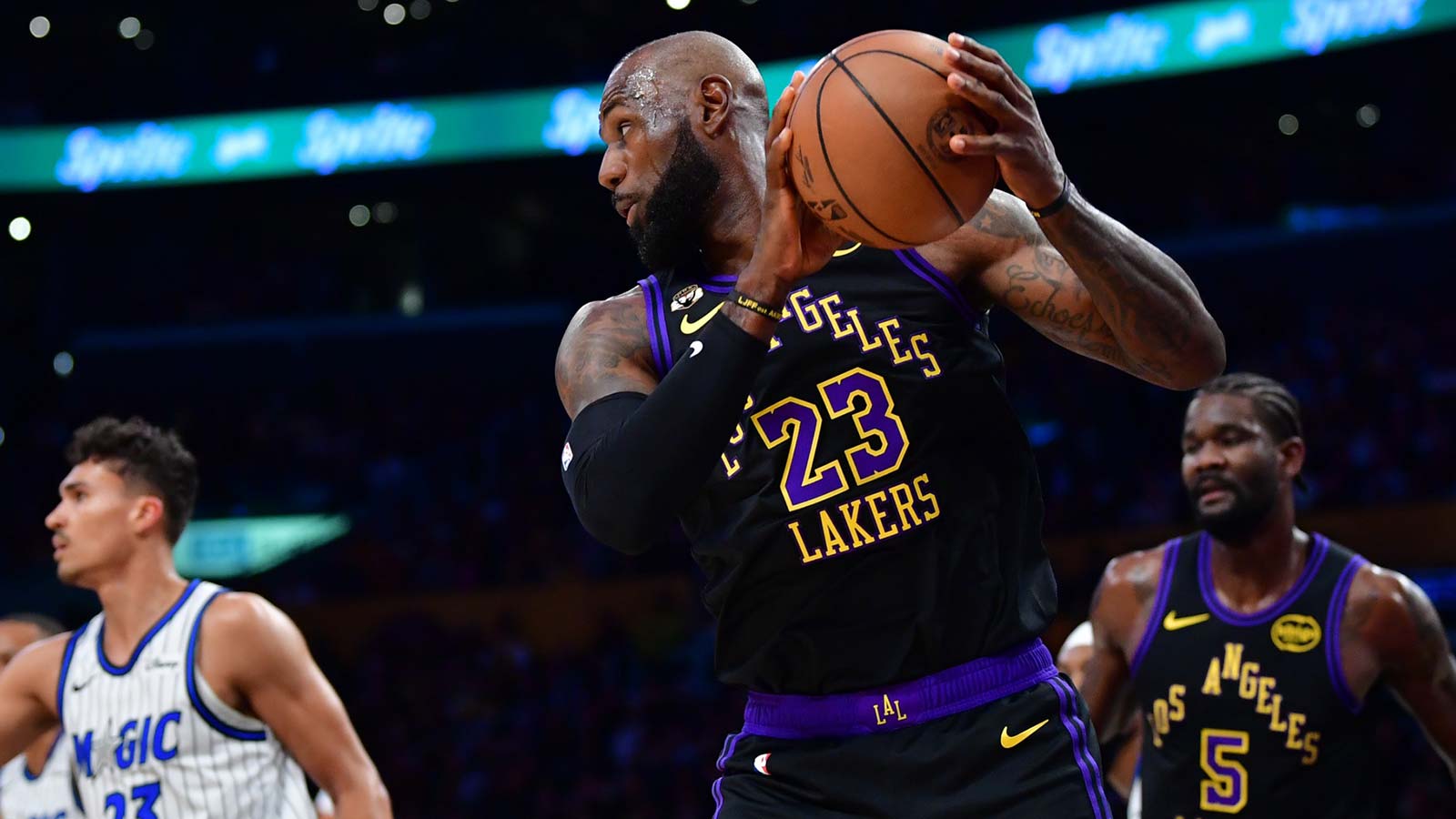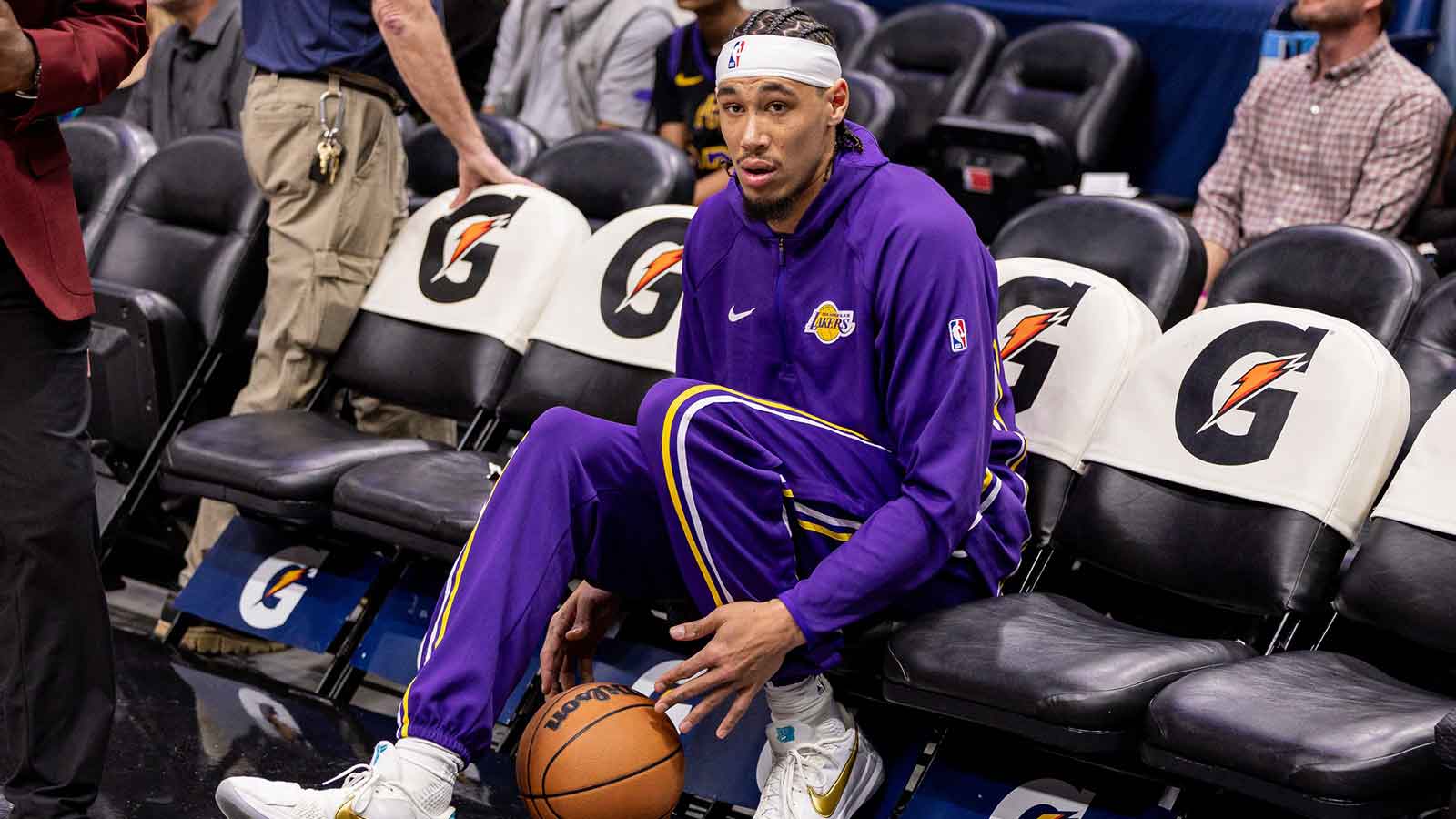Austin Reaves is having a breakout sophomore campaign for the Los Angeles Lakers.
Since Feb. 9 (17 games), Reaves — coming off a season-saving 35-point performance — is averaging 15.6 points and 4.3 assists on .581/.434/.81o shooting splits while among the league leaders in free throws attempted thanks to his rapidly improving footwork and aggression. He's a versatile, scrappy defender who has drawn the seventh-most charges in the NBA despite missing 18 games.
The 24-year-old has become arguably the Lakers' third-best player, a reliable crunch-time staple, and a fan favorite. Not bad for an undrafted free agent.
As heartbroken as Lakers Nation would be to see Reaves in another uniform, more production, of course, means more money. The Arkansas native, earning $1.6 million in 2022-23, is set to hit restricted free agency in July, and there's no guarantee the Lakers will be able to retain him, for a combination of the following reasons expertly laid out by Bleacher Report's salary cap guru, Eric Pincus.
Why the Lakers may not be able to keep Austin Reaves
3) His original two-year deal
Reaves originally signed a two-way contract but the Lakers swiftly converted that to a standard two-year contract (he made an immediate impression in pre-training camp scrimmages).
The Lakers could have avoided Reaves hitting the open market until 2024 had they given him a three-year deal, using leftover money from the taxpayer midlevel exception given to Kendrick Nunn, who missed the entire 2021-22 season and was shipped out in January. As Pincus notes, the Lakers took the same approach with Talen Horton-Tucker and Max Christie (the Lakers could have allocated funds given to Lonnie Walker IV — now out of the rotation — to a third Christie year).
After Reaves' hypothetical three-year deal expired — he would have earned $1.8 million in 2023-24 — the Lakers would own full Bird rights, placing them in the driver's seat to keep him long-term.
According to Pincus, teams nowadays look to sign non-first-round rookies to three-plus year deals, as to have them under mostly non-guaranteed team control at a bargain for longer and to avoid the “Arenas Rule.”
In theory, the Arenas Rule was created to help teams who hit on second-round or undrafted players retain said players in restricted free agency (the Golden State Warriors could not afford to keep Agent Zero after he outplayed the first two years of his contract). However, in Reaves' case, it may end up hamstringing Los Angeles due to the Lakers' cap situation.
3) Cap space
The most Los Angeles can offer Reaves in 2023-24 salary is roughly $11.9 million, while rival teams can offer the non-taxpayer MLE (around $11.4 million, Pincus approximates).
Rival teams with $25+ million in space can offer Reaves a heavily back-loaded, “poison-pill” four-year deal worth over $140 million. Reaves won't get that, but he could receive an offer in the $60-$70 million range that pays him in the $20-$25 million in each of the final two seasons, which would carry stiff luxury tax penalties for teams over the cap. The Lakers, to the umbrage of their fans, certainly care about that. Because the Lakers reportedly intend to re-sign D'Angelo Russell and Rui Hachimura, they're unlikely to have cap room, so they can only offer Reaves about four years, $50 million.
There could be 10-15 teams with the requisite cap room to make Reaves an aggressive offer — many of which are young, rebuilding squads that wouldn't mind adding a reliable, high-IQ, two-way 24-year-old.
Even if Reaves is willing to sacrifice significant coin to stay in Los Angeles, all it takes is another team to play the leverage game and fork over a mega-offer to squeeze the Lakers into ponying up excess cash, which could severely dent their cap sheet and luxury tax bill going forward. They already lost one fan favorite over avoidable money reasons. Fortunately, Jeanie Buss seems determined to stay in the Austin Reaves business. We'll check back with her when the offers roll in.

